Review: CHARLIE AND THE CHOCOLATE FACTORY at Playhouse On The Square
Now Through February 18th
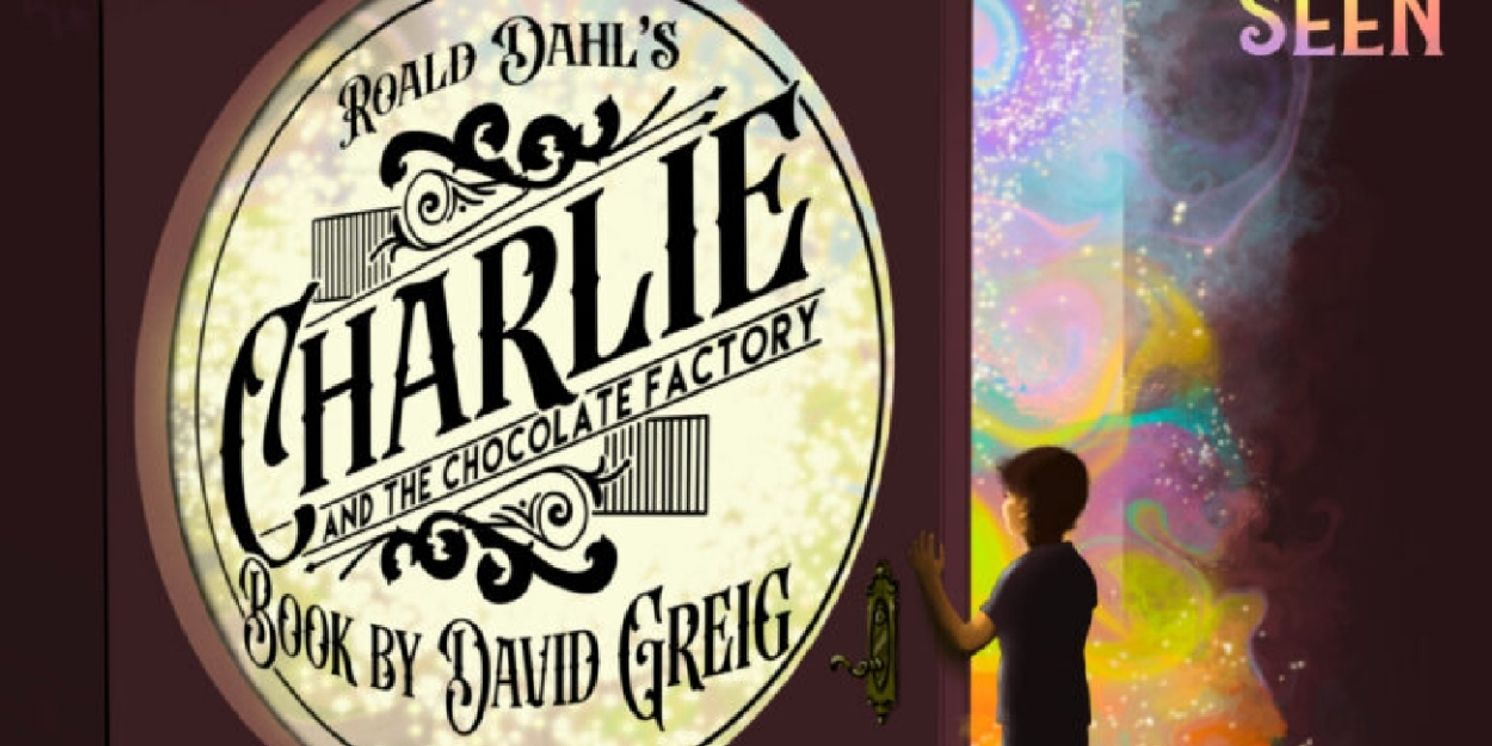
For all of you artists out there who thought Broadway was simply about art and creative endeavors, you’ve got it all wrong. Like almost everything in this world, it’s about making money. The cost of mounting a Broadway show is massive and no one is doing it for the love of the arts. It’s about money. Henceforth, for every “original” musical that opens on Broadway, it’s matched by 4-5 successful movies that have been turned into Broadway musicals (BACK TO THE FUTURE, BEETLEJUICE, WAITRESS, etc.). If it made money as a movie, it’s bound to make money as a musical, right? Maybe. For every successful movie turned into musical (HAIRSPRAY), there have been plenty of flops (ALMOST FAMOUS, GROUNDHOG DAY, CATCH ME IF YOU CAN). So, if you want to hedge your bets as a Broadway producer (THE PRODUCERS-huge hit!), why not take an already successful movie musical and make it into a Broadway musical! It makes sense, but does it make cents? In the case of turning WILLY WONKA AND THE CHOCOLATE FACTORY into a Broadway musical, the answer is a resounding no.
The creators of CHARLIE AND THE CHOCOLATE FACTORY (now through February 18th at Playhouse on the Square) mixed together all the right ingredients. They pulled in songs from the original movie (“The Candy Man” and “Pure Imagination”), added new songs from the creative team behind “musicalizing” HAIRSPRAY, Marc Shaiman and Scott Wittman and stuck to Roald Dahl’s original novel about a candy maker who decides to invite a group of children to tour his chocolate factory for the chance to win one scrumdiddlyumptious award. Somehow though, it didn’t work. The opening received a mixture from “meh” to poor reviews, followed by zero Tony Nominations and closed in eight months.
Perhaps the expectations of comparing the new show to the Gene Wilder classic film were just too high? Maybe it was the baffling decision to turn all the bratty kids (aside from the main child, Charlie) into adults. Or perhaps, it’s just not a good musical for the stage. Let’s go with that one. The songs by Shaiman and Wittman range from dull to forgettable (is that a range?), the journey through the “fantastical” chocolate factory is about as imaginative as touring a paper plant and the decision to turn the obnoxious kids into adults lays a big, fat goose egg.
Under the direction of Dave Landis, Playhouse’s production, strive as it might, doesn’t do itself any favors. Rather than overcoming (or at least masking) the creative weaknesses of this stage version, it only highlights them. Technically, the show has its moments of brilliance, but then goes awry. The costumes by Lindsay Schmeling nicely suit the main characters, but then fall off the deep end when the Oompah Loompas come out dancing in the least creative brown costumes imaginable (only to be accented by adding clear plastic raincoats later). Scenic Designer Lex Van Blommestein does a nice job with the top of the show (the Grandparents home and the candy store), but then offers the hugest of letdowns with the “big reveal” of Wonka’s Chocolate Factory. With a signature song like “Pure Imagination” underscoring the visual, creativity is paramount. Hanging cheap fabric (to mimic a chocolate waterfall) and loosely tacked on (and falling off) greenery to mimic growing candy doesn’t work. It was only when the cast mimed working their way through an invisible maze that it became clear that no sets (and letting the audience use their own imaginations) might work better. The sound design by Joshua Crawford is a technical high point in that all the performers were amplified perfectly over Tom Johnson’s exquisitely taped orchestrations. Terry Eikleberry’s lighting added a nice touch creating a world of creativity and amusement.

This is a hard-working cast but many of them are not able to cut through the fog (both figuratively and literally) of this production. Jimmy Rustenhaven as Willy Wonka has a nice enough voice, but very early on, it’s clear that he’s in over his head. Wonka is a captivating character who vacillates wildly between outrageousness and coyness. He’s an eccentric man with a wicked sense of humor and a twinkle in his eye. It’s a very difficult role to pull off and Rustenhaven lacks the stage presence to carry the show.
Again, the decision to have adults playing the ill-behaved children adds nothing to the experience and simply underscores just how much this show misses the mark.
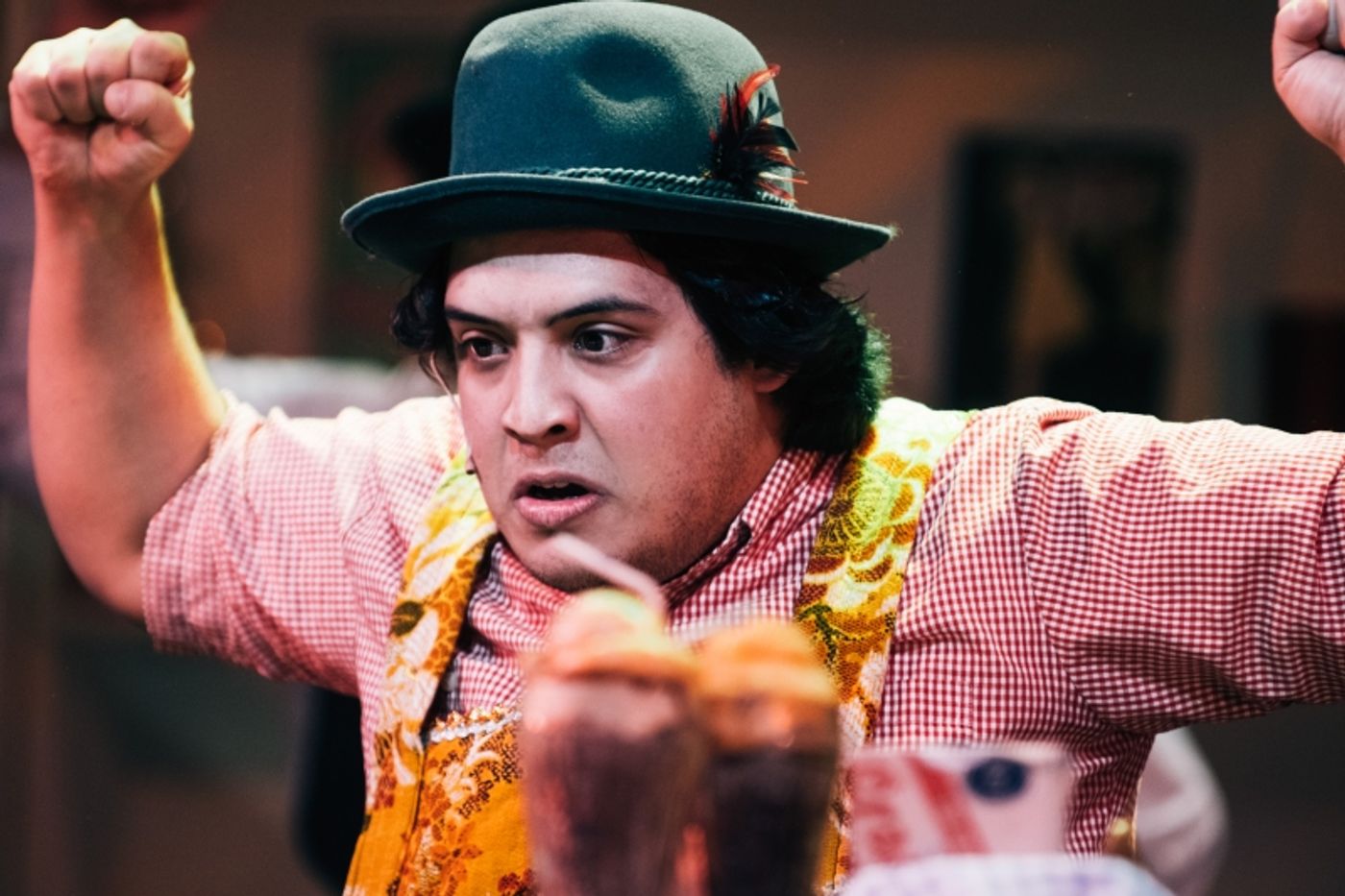
Drew Sinnard does his best to make the gluttonous chocolate eater Augustus Gloop funny with his wide-eyed (and wide-mouthed) visuals, but screaming in a German accent makes him almost unintelligible. Likewise, his mother (Mrs. Gloop) played by Haley Wilson missed all comedic opportunities with her thick accent.
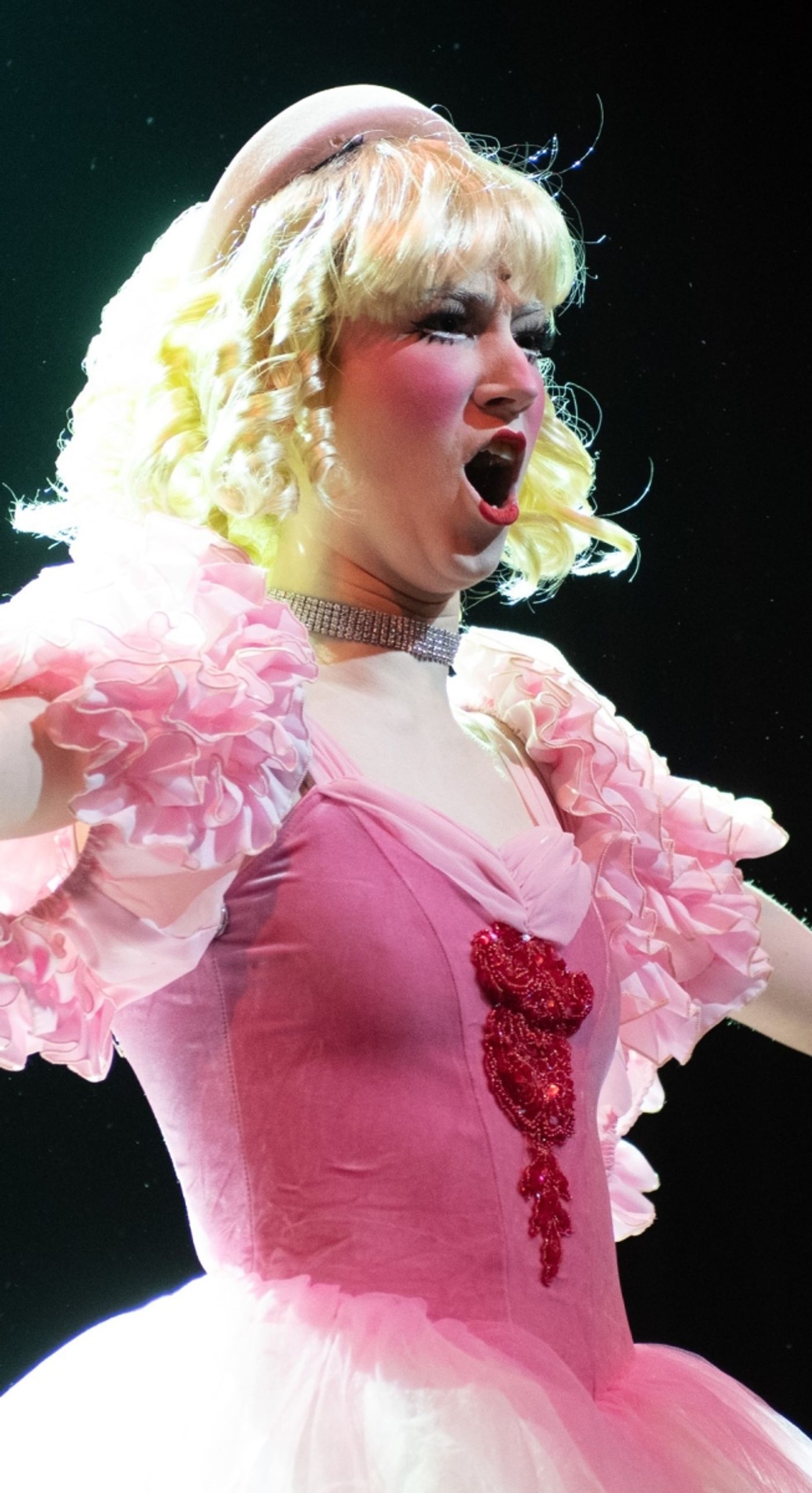
Even louder and even more unintelligible is Katy Cotten as ballerina Veruca Salt with her father (Mr. Salt) played by Eric James Schultz. They’ve definitely got the domineering daughter and doting father bit going, but their comedic timing was off and either too loud or too soft to be understood.
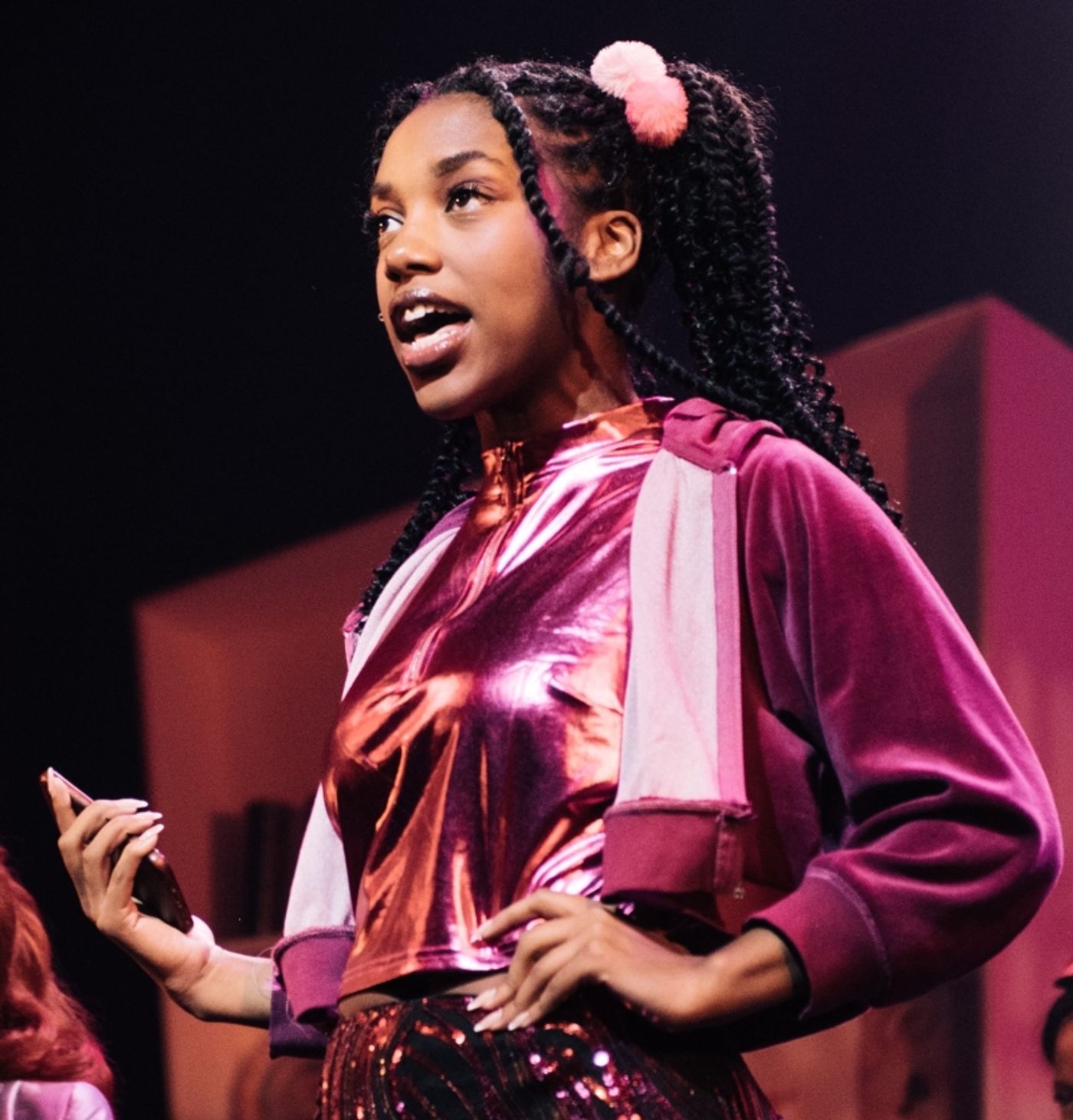
Violet Beauregarde as a teen pop idol wannabe who “pops” her gum incessantly is played by Jasmine Gillenwater. Her “too cool for school” attitude is so understated that she gets overshadowed by the outlandishness around her. Likewise, her father (Mr. Beauregarde) portrayed by Karl Robinson Jr. does his best to keep up with the characters around him, but quickly disappears as a focal point of the show.
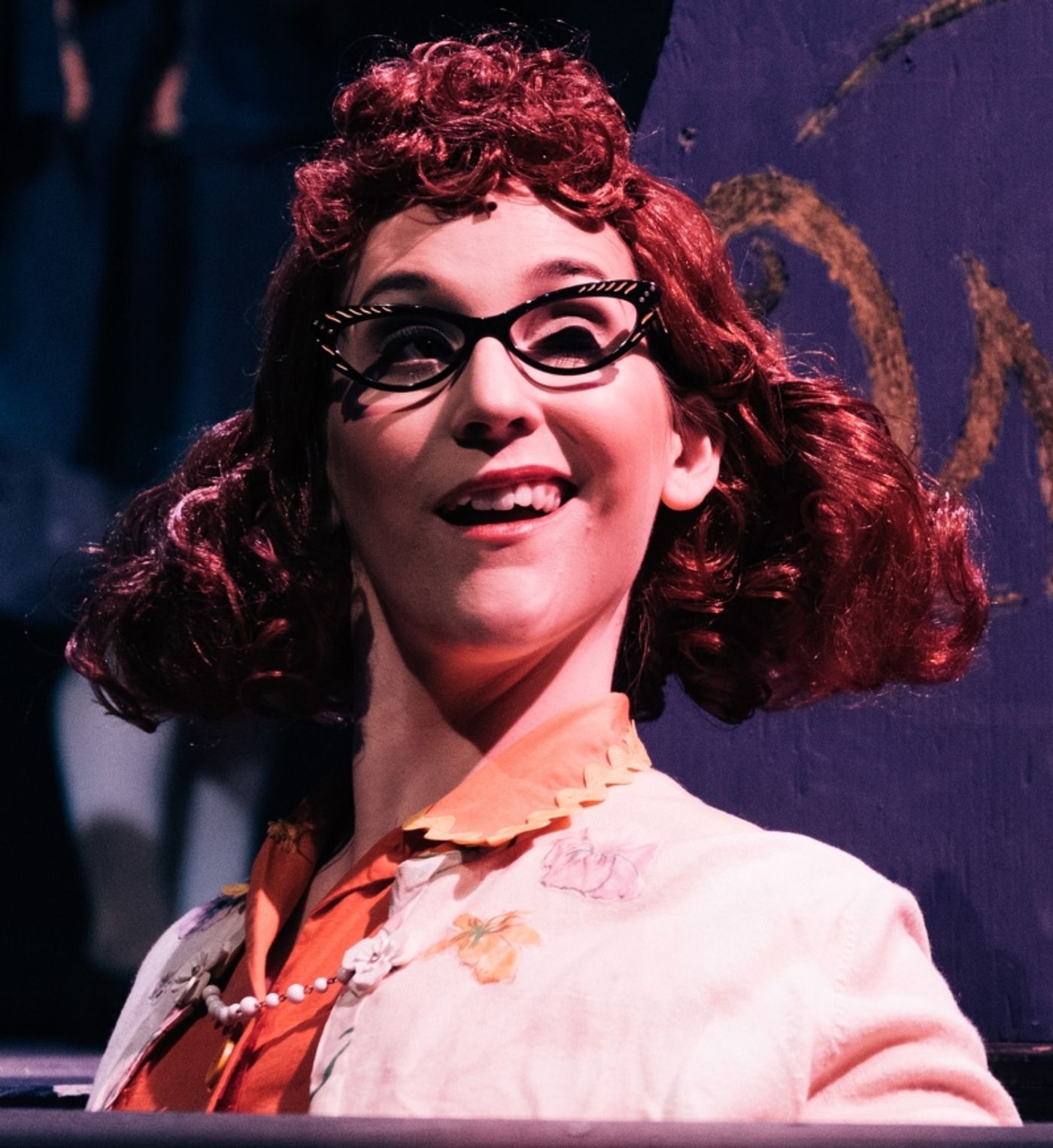
Only Brooke Papritz and Kage Cliburn hit the right notes as pill-popping/booze-guzzling Mrs. Teavee and her screen-addicted son, Mike. Papritz is a comic delight scurrying about the stage in a drug-induced haze while Cliburn nails it as a zoned out, constantly annoyed teenager. Both are a testament to what could have/should have been for the rest.
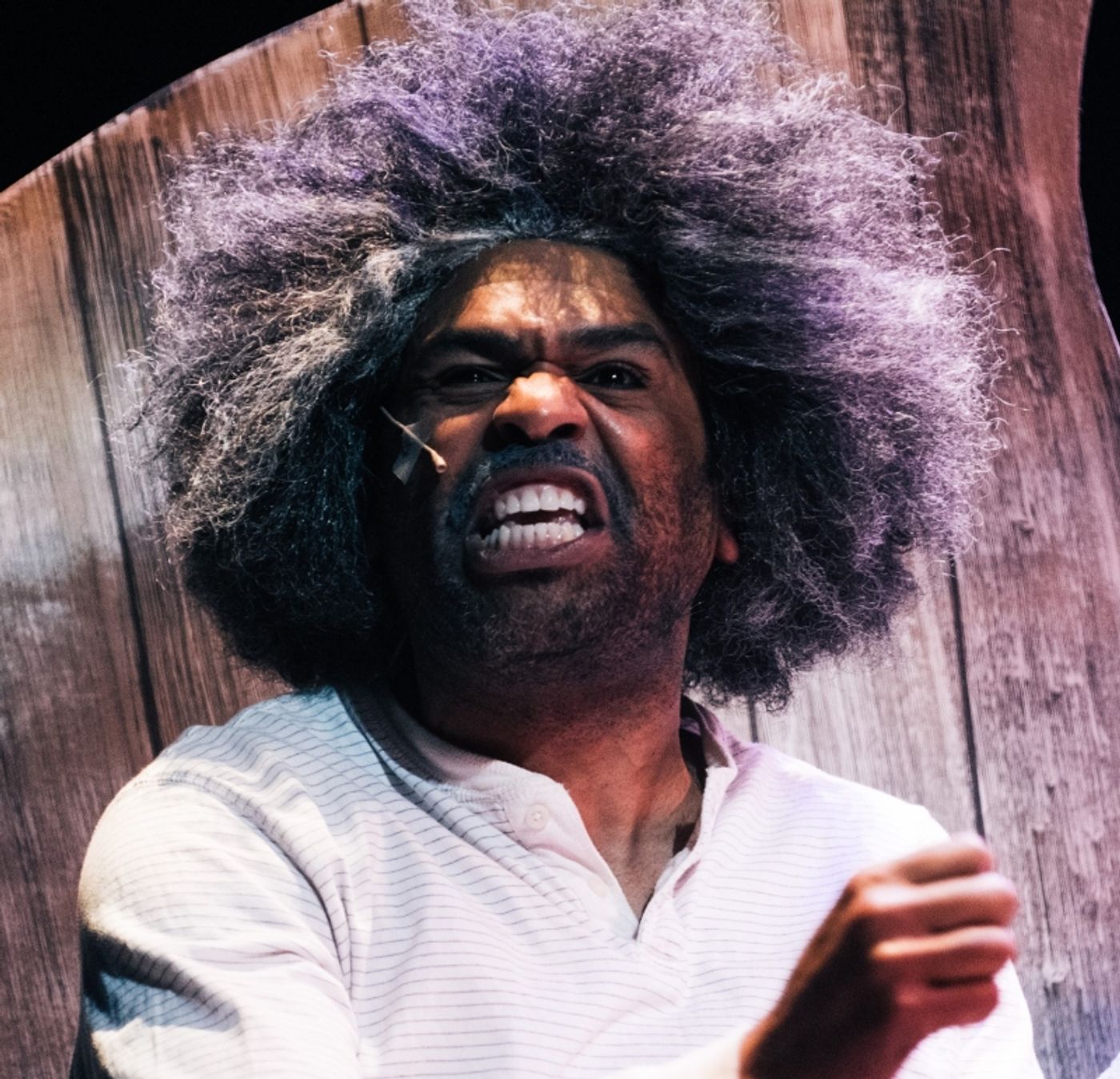
Claiborn “CJ” Thomas Jr. is a visual feast as bedridden Grandpa Joe with his wild hair and even wilder face. Albeit it being a somewhat “one note” performance, Thomas is still charming as a man who is willing to get out of the house and support his grandson Charlie while sprinkling nuggets of wisdom throughout. His joy and enthusiasm are infectious.
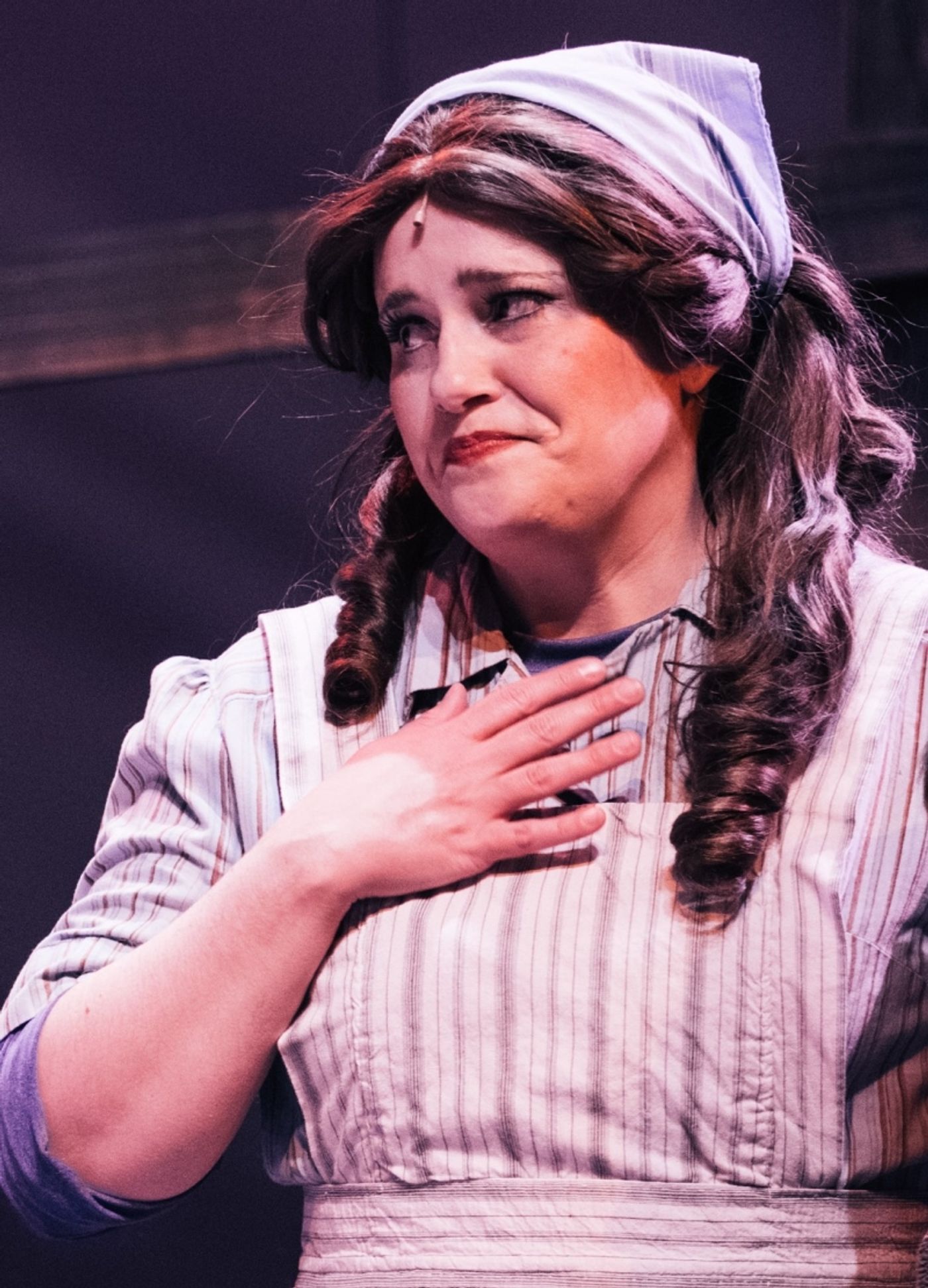
Amy Polumbo Nabors once again proves why she’s one of Memphis’ best as Charlie’s mother, Mrs. Bucket. She brings a warmth and earnestness to the role (just as a mother should) and melts the heart with her rendition of “If Your Father Were Here” lamenting the absence of Charlie’s dad. She’s a highlight.
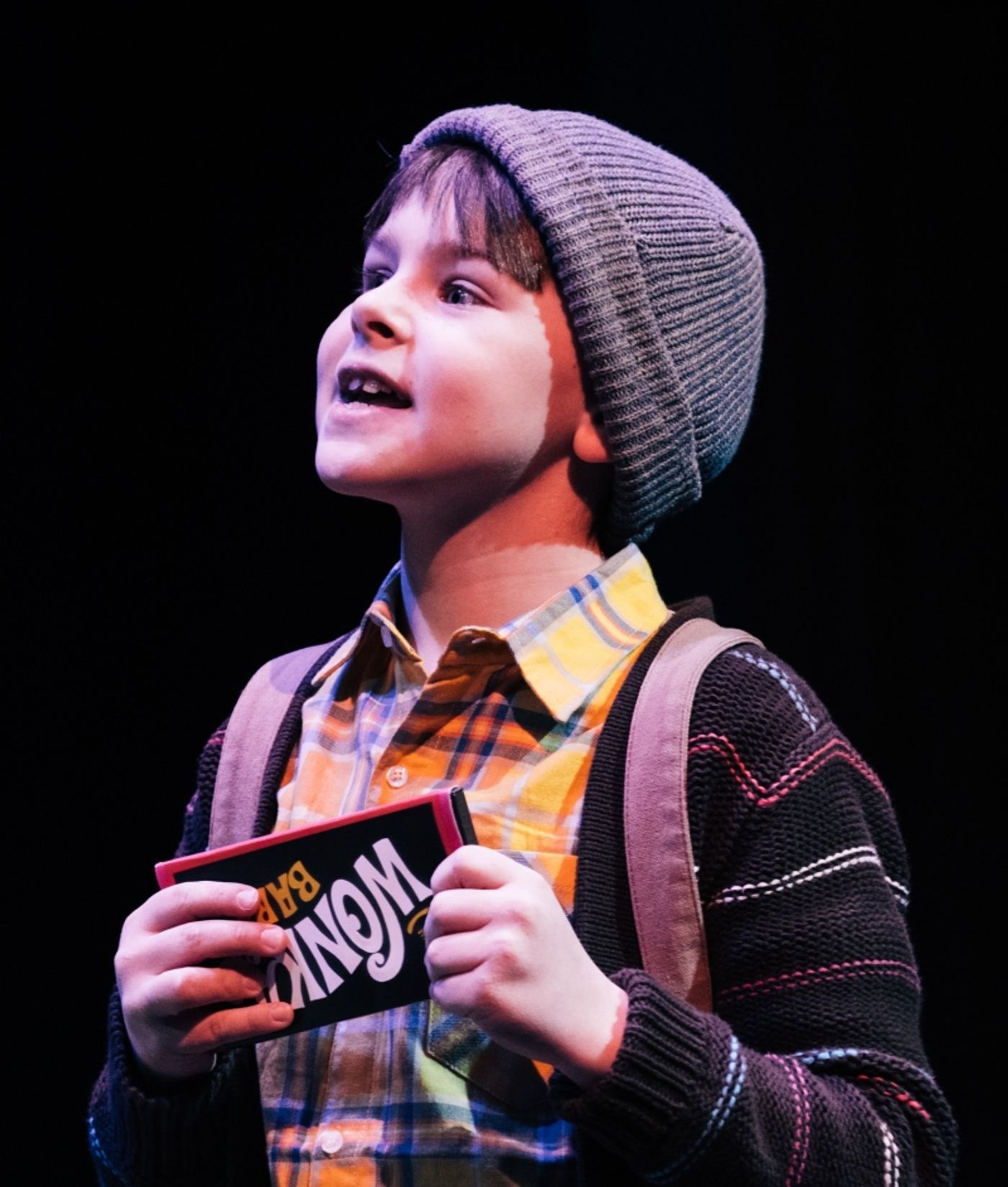
Ultimately, though (and thank God) it’s little McCager Carver who steals the entire show with his performance as Charlie Bucket-the little boy with a heart of gold. He brings a spunky, engaging, and winsome spirit to the role with his trusting and kind nature who simply loves chocolate-specifically Wonka bars. He can sing and act like he's been doing it for years! Carver commands the stage and smacks a never-ending smile on your face. What a joy!
CHARLIE AND THE CHOCOLATE FACTORY should work, but ultimately doesn’t. The supporting cast with engaging choreography by Lexie Lang does their darndest to make something sweet out of this confectionary mess, but are unable to overcome its structural deficits. Roal Dahl’s stories perhaps live best in our imaginations rather than in a 3D tangible form where one’s idea of creativity flounders in comparison to another’s. Wonderment must be in the eye of the beholder. For Broadway and this Playhouse production, unfortunately, this chocolate simply leaves a bad taste in your mouth.
Reader Reviews
Videos

